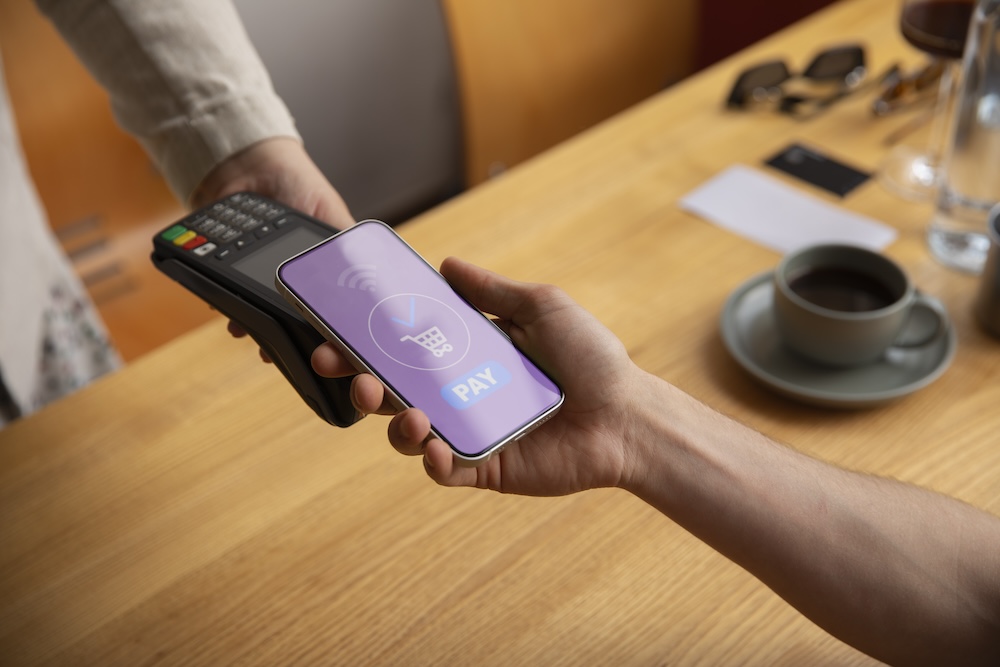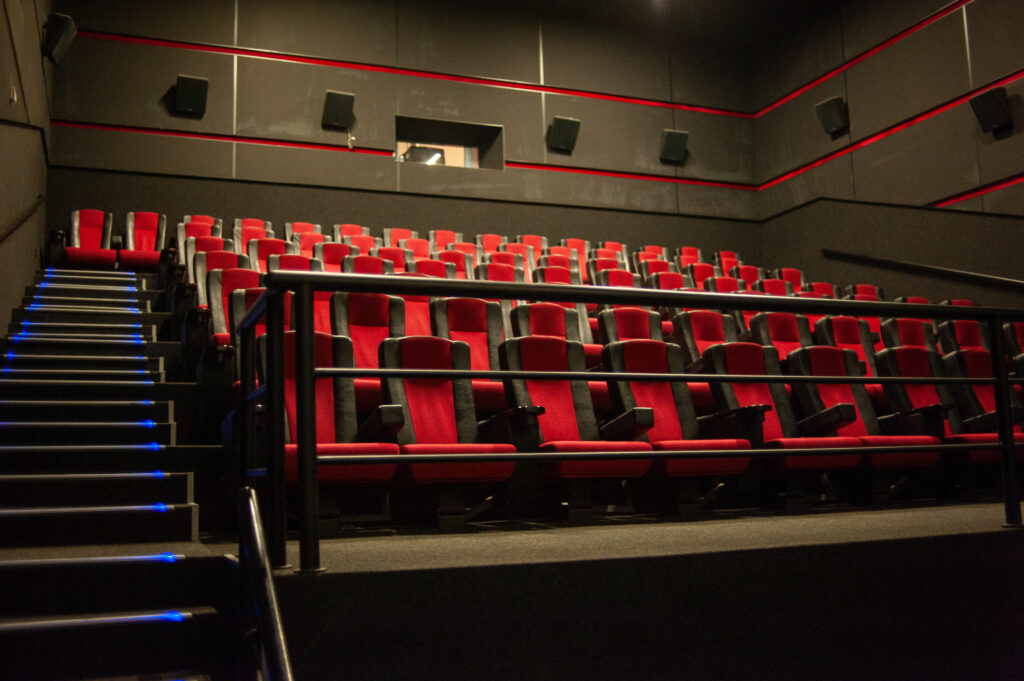Unmasking the post-pandemic trends that are pushing baby boomers to their limits.

The pandemic may have officially ended, but its legacy continues to shape how we live, interact, and work. While many have adapted seamlessly to this rapid evolution, baby boomers often find themselves swimming upstream in a cultural tide that feels unfamiliar and, at times, disorienting. This generation, forged in an era of face-to-face interaction and analog reliability, now faces a world transformed by isolation, automation, and social shifts that challenge their core values.
As younger generations embrace these sweeping changes, boomers are left grappling with trends that can feel cold, impersonal, and even disrespectful. These shifts don’t just signify technological progress—they represent a fundamental transformation in how society values communication, etiquette, and connection. What once felt like common courtesy or standard practice now seems outdated, leaving many boomers struggling to find their footing in a world that no longer mirrors the one they helped build.
1. The End of Face-to-Face Conversations Is Leaving Boomers Feeling Isolated

As society leaned heavily into video calls, messaging apps, and digital interactions during the pandemic, baby boomers found themselves increasingly cut off from the meaningful face-to-face contact they had always cherished. While these technologies offer convenience, they lack the warmth and nuance that boomers associate with genuine connection, according to Lucy Barkas at 3WH. Eye contact, tone of voice, and body language—all essential elements of communication for this generation—are easily lost in a digital medium.
Many boomers feel a growing sense of loneliness as personal meetings give way to screens. They remember a time when a conversation meant sitting across from someone, sharing space, and being truly present. In contrast, today’s quick replies and virtual meetings often feel rushed and impersonal. This shift has left many boomers feeling like outsiders in their own social circles, longing for the kind of interaction that made relationships feel real.
2. Decline in Customer Service Is Testing Their Patience

Boomers grew up expecting to interact with people when they needed help—whether that meant speaking with a store clerk, a bank teller, or a receptionist, as mentioned by writers at The Guardian. These human touchpoints offered not just assistance, but also a sense of dignity and care. Today, the proliferation of automated systems, self-checkouts, and AI-driven support has replaced the friendly face with a digital wall, often leaving boomers frustrated and bewildered.
When a problem arises, being directed to a chatbot or waiting endlessly for a real person can feel not only inconvenient but also demeaning. Boomers don’t just want solutions—they want to feel heard and valued. This erosion of service culture signals to them that customer satisfaction has taken a backseat to cost-cutting and efficiency, and that human connection is no longer a priority in the modern world.
3. Casual Dress Codes Have Gone Too Far for Their Taste

In a world where sweatpants have become office attire and wedding guests show up in sneakers, boomers see a loss of respect woven into the fabric—literally—of daily life. For them, how you dress speaks volumes about your values and your regard for others. Dressing up was once a sign of effort, dignity, and social awareness, especially in formal or professional environments.
Now, they feel disheartened by the normalization of hyper-casual wear in places that once demanded polish. This isn’t about vanity; it’s about signaling seriousness, gratitude, and occasion. Watching the collapse of dress codes can feel like watching the erosion of cultural standards they were taught to uphold, as studied by Margaret Dimauro at Southern Connecticut State University. To boomers, it’s another reminder that what once mattered deeply has become irrelevant to many.
4. The Rise of Cancel Culture Feels Unforgiving and Overreaching

Boomers often struggle with the rigidity of cancel culture, which to them feels devoid of nuance, forgiveness, or the ability to evolve. In their day, disagreement or mistakes were part of public discourse and personal growth. Today, one misstep—no matter how long ago—can result in being completely ostracized, with little opportunity for redemption or dialogue.
This environment makes many boomers feel as though they’re constantly walking on eggshells, afraid that a poorly worded opinion or outdated reference might spark backlash. They worry that this culture punishes rather than educates, silences rather than encourages understanding. It fosters a climate of fear rather than one of learning or reconciliation—something they find both unfamiliar and deeply troubling.
5. Digital Overload Is Alienating Them from the Real World

From scanning QR codes at restaurants to downloading apps for parking meters, boomers feel bombarded by an ever-expanding digital landscape. While many are reasonably tech-literate, the expectation that everything must now be done via phone or screen can feel excessive and exhausting. The simple act of dining out or shopping now often requires navigating digital interfaces that weren’t designed with them in mind.
This shift can feel alienating, not because boomers are unwilling to learn, but because they value simplicity and human interaction. The new normal of minimal face-to-face service, replaced by screens and apps, strips away the tactile and relational experiences they hold dear. It’s not resistance to progress—it’s a longing for a balanced world where both convenience and connection coexist.
6. The Shrinking of Public Manners Has Them Shaking Their Heads

Boomers were raised with a strong emphasis on politeness, patience, and consideration for others in public spaces. But in the wake of the pandemic, they’ve noticed a marked decline in these social graces. People talk loudly on phones in quiet spaces, cut in line without apology, and treat service workers with open hostility. This behavioral shift leaves boomers dismayed and even embarrassed by what seems like a breakdown in basic human decency.
They believe manners are not just superficial courtesies, but a social contract that keeps society running smoothly. When those unwritten rules are ignored, it can feel like a fraying of the cultural fabric. Boomers are left wondering when empathy and courtesy became optional—and whether we’re all worse off because of it.
7. Home-Delivery Overload Is Making the World Feel Lazy

To boomers, the explosion of delivery services during and after the pandemic symbolizes more than convenience—it represents a retreat from responsibility and engagement with the world. They remember walking to the store, chatting with clerks, and making spontaneous purchases. These weren’t chores—they were small rituals that gave structure and social rhythm to daily life.
Now, with everything from groceries to restaurant meals showing up at the door, they worry that ease has replaced effort, and comfort has eclipsed community. The reduction in physical activity and real-world interactions, in their view, contributes to societal detachment and a growing sense of inertia. What once was considered a luxury has now become the default, and it leaves boomers wondering about the long-term consequences.
8. Remote Work Culture Feels Like a Loss of Team Spirit

While remote work has offered flexibility and convenience for many, boomers often see it as a sacrifice of camaraderie and collaborative energy. They remember office culture as a place where bonds were formed over coffee breaks and trust was built through in-person brainstorming and shared lunches. These experiences created a sense of loyalty and connection that they feel is fading fast.
The shift to working from home, with communication relegated to emails and virtual meetings, feels impersonal and transactional. For boomers, this is not just a change in logistics—it’s a change in values. They worry that the absence of face-to-face contact will erode teamwork, mentorship, and the very fabric of workplace culture that once defined their professional lives.
9. Social Media Activism Feels Performative and Hollow

Boomers value action over appearance, and this mindset shapes their skepticism toward social media activism. While they appreciate raising awareness, they often question the sincerity behind quick posts, hashtags, and temporary profile changes. To them, activism is about sustained effort, sacrifice, and real-world engagement—not fleeting digital signals.
They worry that these symbolic gestures can create a false sense of accomplishment, replacing meaningful work with online applause. The line between advocacy and virtue signaling has become blurred, and boomers fear that the gravitas of serious issues is being diluted by trend-driven content. This dissonance makes them hesitant to engage in online discourse, even when they care deeply about the issues at hand.
10. The Death of Cash Feels Like a Loss of Independence

As society pushes toward cashless transactions, many boomers feel left behind. For them, cash isn’t just currency—it’s autonomy. Using cash provides a sense of control, anonymity, and independence that digital systems can’t replicate. Losing that option feels like a subtle but significant erosion of their personal freedom.
The pandemic accelerated this shift, with many businesses refusing cash altogether. Boomers worry about what happens when power outages occur, systems crash, or they simply want to help a grandchild with a spontaneous gift. To them, being forced into a fully digital financial world feels exclusionary and even coercive, especially when no viable alternatives are offered.
11. Streaming-Only Entertainment Leaves No Room for Nostalgia

Boomers find joy in physical media not just for the content, but for the ritual and permanence it represents. They treasure shelves of records, DVDs, and books that hold sentimental value and don’t vanish with a policy change or server outage. The post-pandemic dominance of streaming services has diminished their access to these treasured formats.
Moreover, the unpredictable nature of digital platforms—where favorite shows can disappear overnight—leaves boomers uneasy. They value ownership over access, and the shift toward endless subscriptions feels less like progress and more like a loss of cultural grounding. Without a tangible connection to the entertainment they love, boomers fear that entire eras are being erased without warning.
12. Overemphasis on Wellness Trends Feels Judgmental

The rise of hyper-curated wellness culture, amplified post-pandemic, feels alienating to boomers who value moderation and balance. While they believe in staying healthy, they’re wary of rigid food plans, detox routines, and fitness obsessions that prioritize appearance over genuine well-being. To them, it often feels like being shamed for aging naturally or not adhering to the latest lifestyle fads.
Boomers worry that wellness has become more about branding than substance—less about health and more about selling a fantasy. This shift undermines their lived experience and wisdom, making them feel excluded from conversations about aging gracefully. Instead of being celebrated for making it this far, they often feel judged for not doing it according to Instagram’s rules.
13. Rise of Pet Parenting Over Human Connection Confuses Them

Boomers love their pets, but they are puzzled by the growing trend of treating animals as full-on human replacements. From dog birthday parties to pet strollers and baby talk, they feel this level of devotion often comes at the expense of deeper human relationships. While affection for animals is commendable, prioritizing pets over people strikes boomers as a worrisome shift.
They worry that the focus on “fur babies” reflects a culture growing more isolated and emotionally distant. For a generation that placed immense value on family ties and communal living, watching people substitute animal companionship for human intimacy feels like a departure from values that fostered meaningful social bonds. It’s not judgment—it’s concern for what we may be losing.
